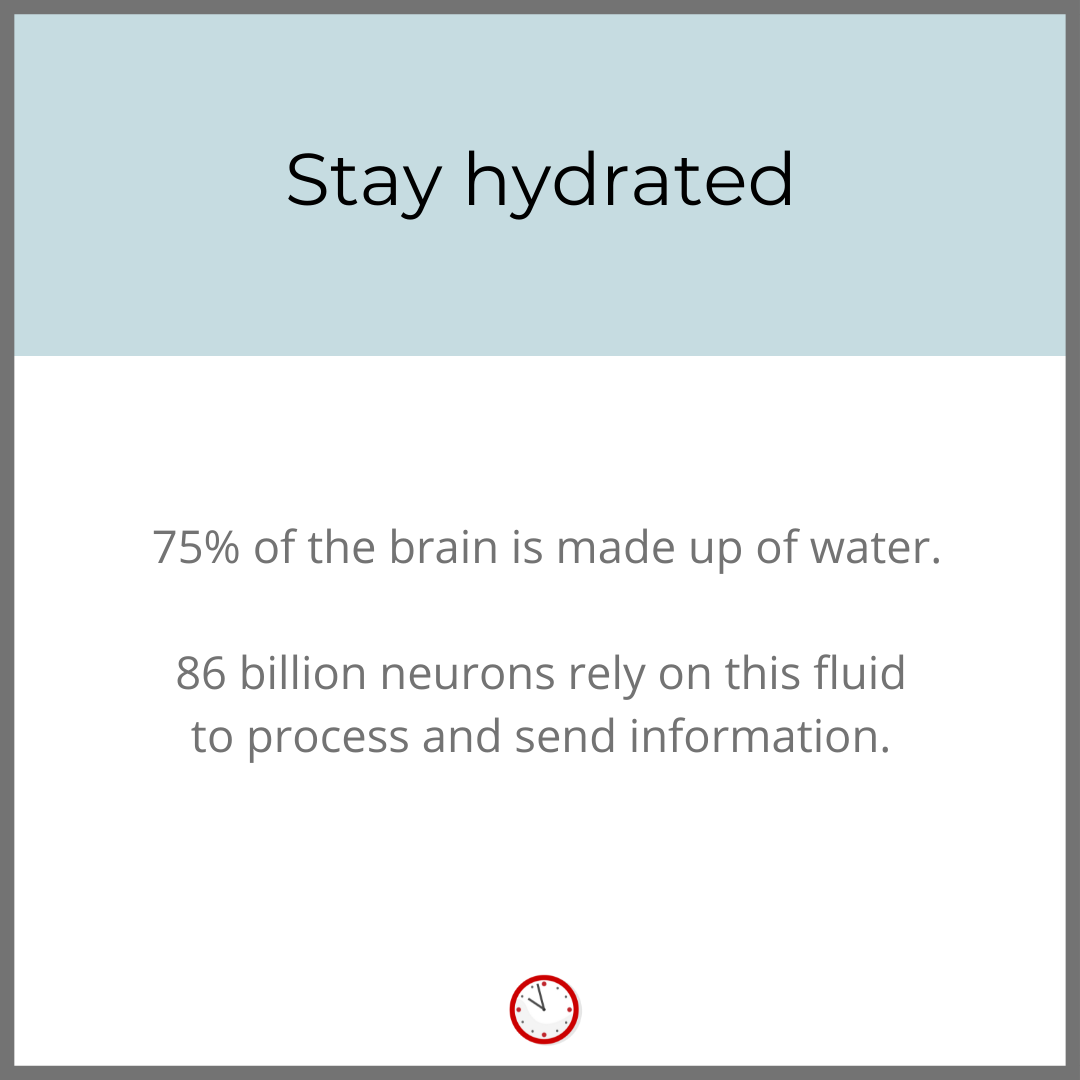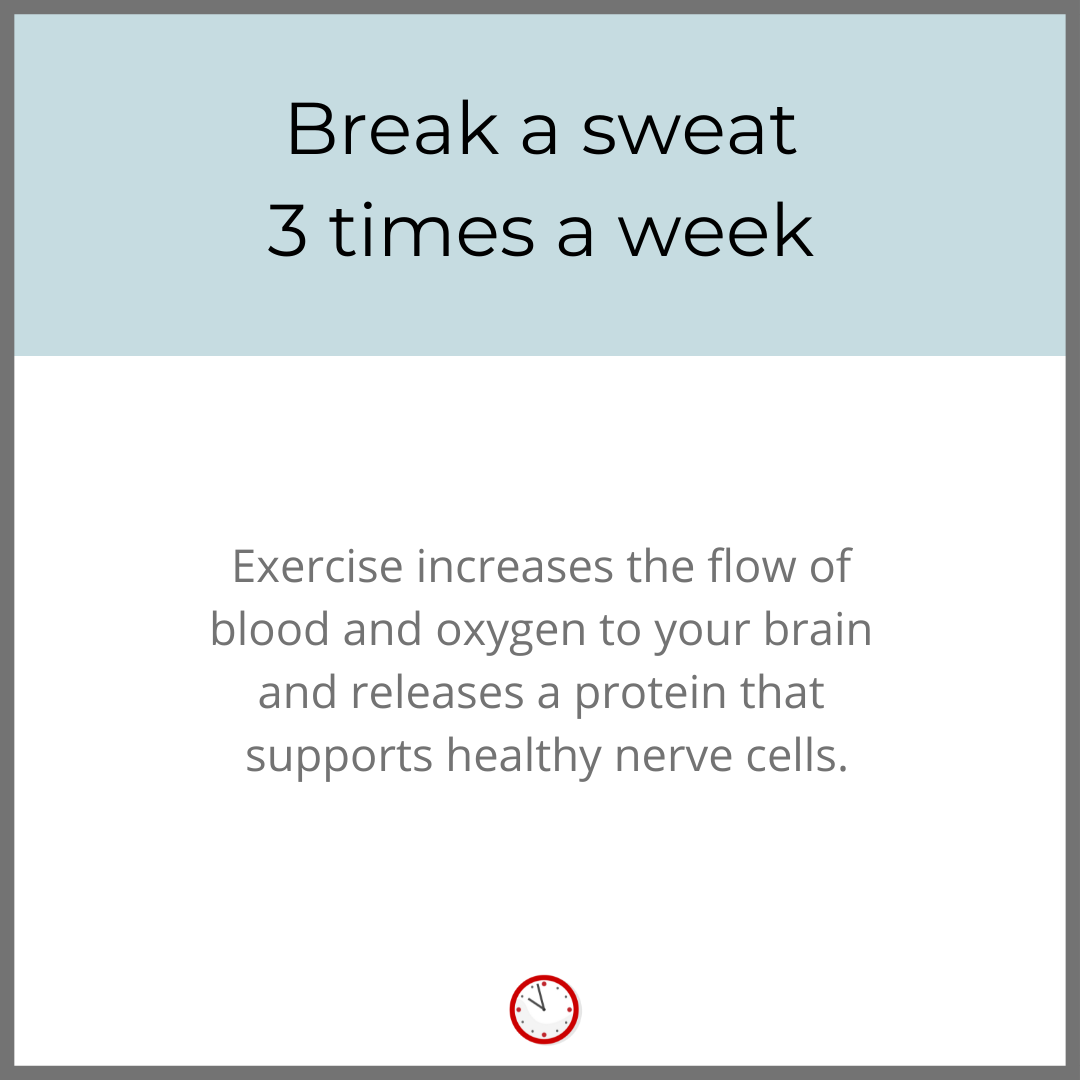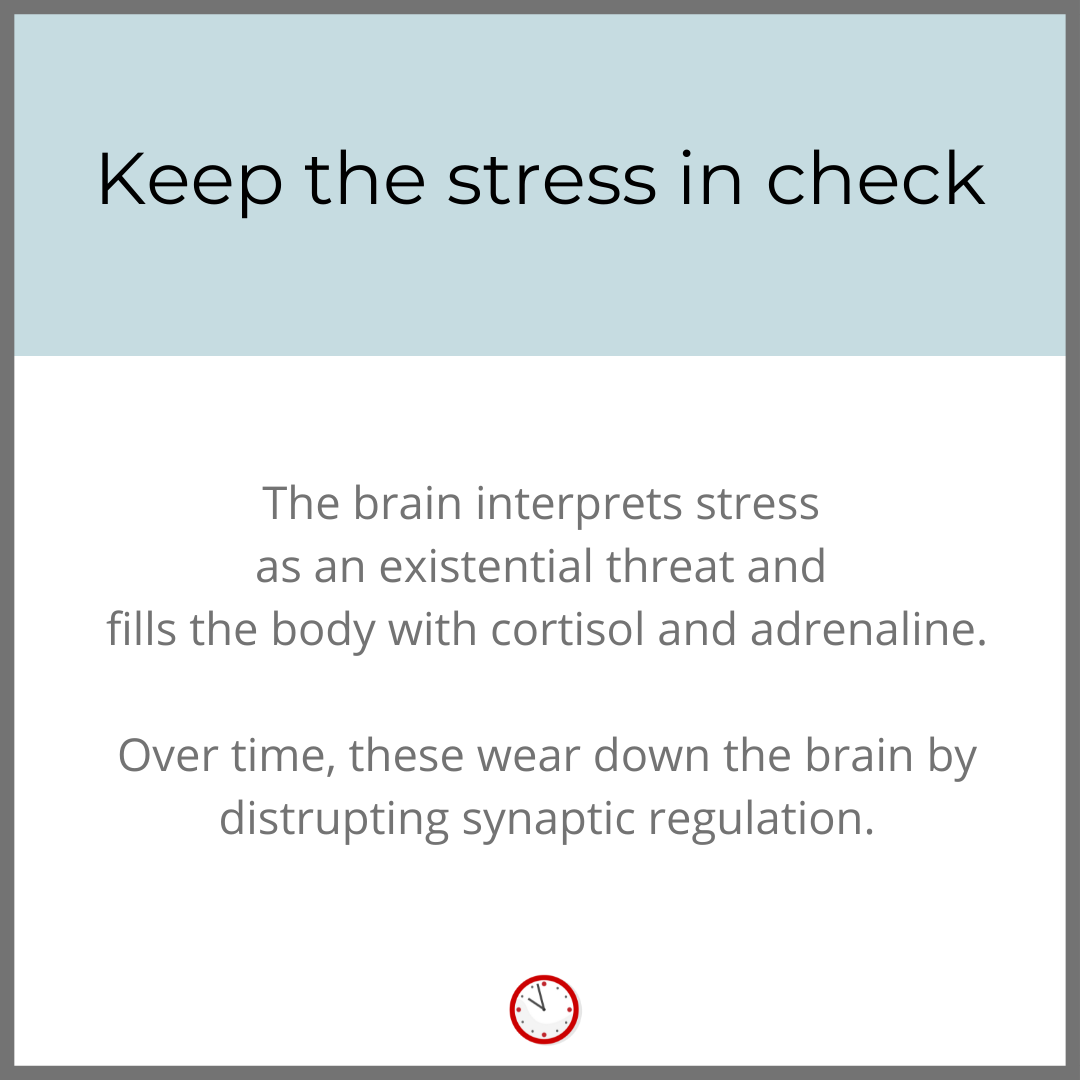5 Things You Can Do To Save Your Brain
[Reading time: 2 minutes 10 seconds]
Years ago, I heard someone say "If you are so lucky as to live to be an old person…"
The phrase made me feel such optimism about old age!
If you are lucky enough to live to be an old person, here are some tips to keep your brain healthy along the way. These come from neuroscientists, experts in executive functions, alternative medicine experts, and mindfulness practitioners.
In a nutshell, optimal brain health is about supporting a good flow of oxygen/blood to your brain but also supporting ongoing connectivity between neurons:
Allow yourself to think deeply
 The brain is a complex network of connections that develop and change over time. Thinking deeply strengthens specific neural networks and optimizes brain connectivity.
The brain is a complex network of connections that develop and change over time. Thinking deeply strengthens specific neural networks and optimizes brain connectivity.
Mark D'Esposito, a professor of neuroscience at the University of Berkeley says that when brains are injured, the state of its connectivity will predict the person's response to interventions.
Here's a link to his interview with The Center for Brain Health.
Here are a few ways to think more deeply: Read a book, don't multitask, be present, and set up a work environment as free from distraction as possible.
Cal Newport (Deep Work: Rules for Focused Success in a Distracted World) points a finger at the 24/7 pull of digital distraction and writes "the ability to concentrate intensely is a skill that must be trained and efforts to deepen your focus will struggle if you don't simultaneously wean your mind from the dependence on distraction".
Stay hydrated
 75% of the brain is made up of water and 86 billion neurons rely on the brain's fluid to process and send information.
75% of the brain is made up of water and 86 billion neurons rely on the brain's fluid to process and send information.
Being hydrated makes it easier for those neurons to function properly and do its daily clean up when you sleep.
Dr. Maiken Nedergaard, a professor of neurosurgery at the University of Rochester says that when we sleep, the flow of cerebrospinal fluid in and out of the brain washes away harmful waste proteins that build up during our waking hours.
A general rule of thumb: Drink half your weight in ounces every day.
Get the sleep you need every night

Sleep allows your hippocampus to consolidate the day's experiences but even more important, it's a time when your brain cleans up the glymphatic system.
It's yet another reason to stay hydrated!
Here are tips to improve the quality of your sleep: Be consistent in your bedtime, charge your phone in another room, and before you turn off the light spend 10 - 15 minutes writing down all the things that are on your mind.
Break a sweat 3 times a week
 Exercise increases the flow of blood and oxygen to your brain. It also releases a protein that enriches the brain called Brain Derived Neutrophic Factor (BDNF).
Exercise increases the flow of blood and oxygen to your brain. It also releases a protein that enriches the brain called Brain Derived Neutrophic Factor (BDNF).
Marydee Sklar calls BDNF "Miracle Grow for the brain" because every time you exercise, you're actually feeding your brain.
Here's how to get started on an exercise routine: Exercise early in the day, walk/workout with a friend, don't make lofty promises to yourself (ie start small), and log your exercise successes in a visible place.
Keep the stress in check
 The brain interprets stress as an existential threat.
The brain interprets stress as an existential threat.
Since the brain's main job is to keep you alive, this perceived danger/existential threat triggers a survival mechanism that floods your brain with cortisol and fills you with adrenaline. The cortisol blocks access to your higher thinking/reasoning and the adrenaline triggers the body's fight or flight response.
As far as the brain is concerned, danger means don't think... just run!
This can be very useful if you're being chased by a tiger on the Savannah but this mechanism is not that useful when it's triggered by every day, non life-threatening activities.
Chronic stress and cortisol are actually toxic over time and wear down the brain by disrupting synapse regulation.
Here are a few ways to reduce stress: practice mindfulness, exercise, get more sleep, and spend time on restorative/self-care activities.

Here are a few additional tips to help your brain right now
Eat regular meals
The brain uses approximately 20% of your body energy and when you skip a meal, it recognizes that there is less energy to distribute. Because it's #1 purpose is to keep you alive, it will always make sure there is energy to keep your vital organs (heart, lungs, etc) working. Eating regular meals keeps a constant flow of energy into your body and your brain.
Take time to do nothing
It's easy to spend every moment being productive, communicating or being entertained but doing nothing allows the brain to consolidate memory and reinforce learning. It's also quality time for inspiration and creativity to show up.
When was the last time you sat on the couch with no phone, kids or pets - no distractions of any sort? When was the last time you laid down on the grass and looked at the sky?
Spend time in nature
When you spend time in nature, you are not typically focusing your direct attention on anything in particular so it gives the brain a break and time to restore itself. It also prompts the body to release mood-elevating neurotransmitters like dopamine, oxytocin and serotonin.
Here's the good news: studies show that if you can't go outside, you can also get benefit by looking at pictures of nature.
What is GoBrainGo?
GoBrainGo is a resource library of almost 100 videos that support each of the ten brain skills. What does the brain need to get things done efficiently? Stay on task and on time? Stop getting overloaded by lists that never, ever get completed?
Here's how to get practical, useful tips and techniques to take back control of your day.
Stay Connected
Join our mailing list to receive new blog posts.
Don't worry, your information will not be shared.
We hate SPAM. We will never sell your information, for any reason.



